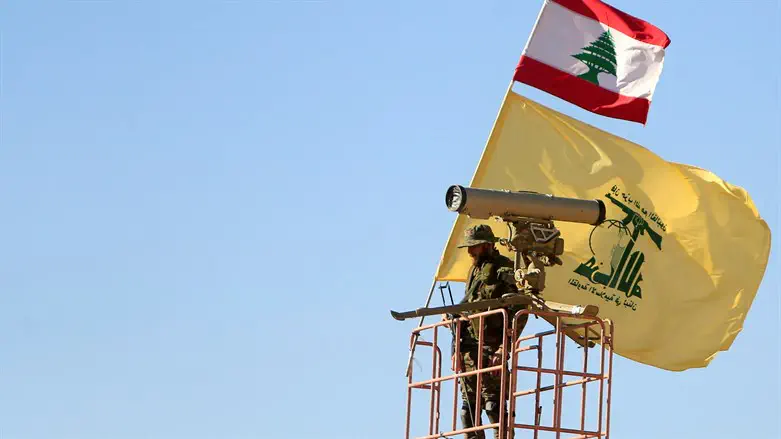
Hezbollah is prepared to enter discussions with Lebanon’s President Joseph Aoun regarding its military arsenal, according to a senior official from the group, contingent on Israel pulling out of key areas in southern Lebanon and halting its military activity there.
The official, speaking to Reuters on Tuesday, confirmed that Hezbollah is “ready to discuss the matter of its arms if Israel withdraws from the five points, and halts its aggression against Lebanese.”
This marks the first time Hezbollah has openly signaled willingness to negotiate over its weapons stockpile, which remains a contentious issue in Lebanese politics.
President Aoun, who assumed office in January, has prioritized consolidating state authority over all armed forces in Lebanon. Sources familiar with the president’s intentions say he is preparing to engage Hezbollah in direct talks in pursuit of that goal.
Pressure on Hezbollah to disarm has increased in the wake of the war with Israel, which inflicted substantial losses on the group, including the deaths of senior commanders, large numbers of fighters, and the destruction of much of its rocket capability. Additionally, the fall of former Syrian President Bashar Al-Assad—Hezbollah’s key regional ally—further disrupted the group’s logistical and military support.
Israel has retained control over five strategic hilltop locations in the south, despite withdrawing the bulk of its forces after the conflict. Israeli authorities have stated that they will only transfer control of those positions to the Lebanese Army once the security environment is deemed stable.
Two individuals familiar with Hezbollah’s internal deliberations who spoke to Reuters suggested the group may be considering handing over advanced weaponry, including drones and anti-tank missiles, to the army—but only north of the Litani River, in accordance with a US-brokered ceasefire that mandates the dismantling of unauthorized armed entities in southern Lebanon.
Hezbollah’s leadership maintains that its weapons are essential to national defense and has historically rejected disarmament. Critics within Lebanon argue that the group’s independent military capabilities have undermined the authority of the state and drawn the country into unwanted conflicts, including a brief civil war in 2008.
Deputy United States Special Envoy to the Middle East Morgan Ortagus earlier this week called for the immediate disarmament of Hezbollah and other non-state militias in Lebanon, warning that their continued operations undermine both Lebanese sovereignty and regional peace.
In a televised interview with Lebanon's LBCI, Ortagus asserted, "It's clear that Hezbollah has to be disarmed and it's clear that Israel is not going to accept terrorists shooting at them, into their country, and that's a position we understand."
The interview came at the conclusion of Ortagus's three-day diplomatic mission to Beirut, during which she held discussions with Aoun, Prime Minister Nawaf Salam, Parliament Speaker Nabih Berri, and other senior officials and political figures.
Foreign Minister Gideon Sa’ar last week issued a sharp warning to Lebanon, demanding that it take immediate action to dismantle terrorist organizations operating within its territory.
Speaking at an international media briefing, Sa’ar accused Lebanon of allowing hostile groups to operate freely within its borders.
“We expect Lebanon to take action to uproot terrorist organizations acting within its borders against Israel. What we saw here is cooperation between Iran, Hezbollah, and Hamas on the soil of Lebanon in order to initiate terrorist attacks against Israelis,” Sa’ar stated.
On Sunday, IDF Chief of Staff Eyal Zamir held a situational assessment on the Lebanese border. As part of the visit, Zamir met with the commanders operating in the sector, both regular and reservist personnel, and expressed his appreciation for their service. He was also presented with updated operational plans.
“We are continuing the campaign to strengthen our defense while demonstrating initiative and proactive action. To our reservists — if there is something truly remarkable about the people of Israel, it’s you. We will do everything to strengthen the reserve system in every aspect. People keep showing up because of your leadership - as commanders,” Zamir stated.
The Chief of Staff clarified his directive that the IDF does not permit civilians to go beyond the border, rather only within the territory of the State of Israel, and only in areas where that has been permitted in the past, in accordance with the security situation.
